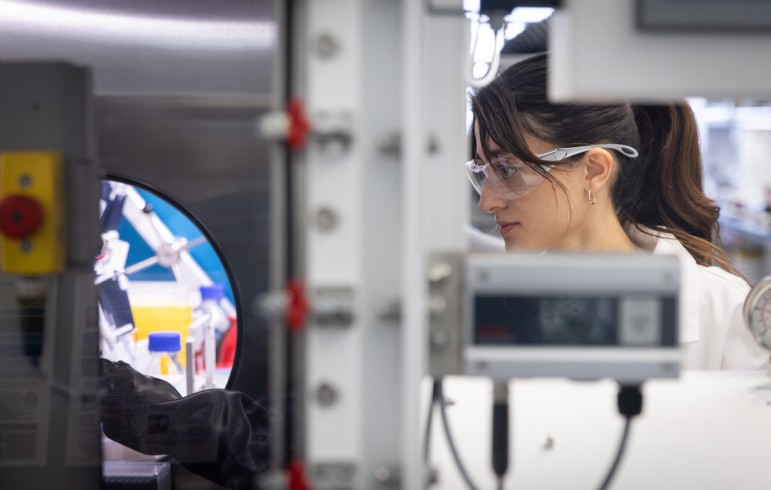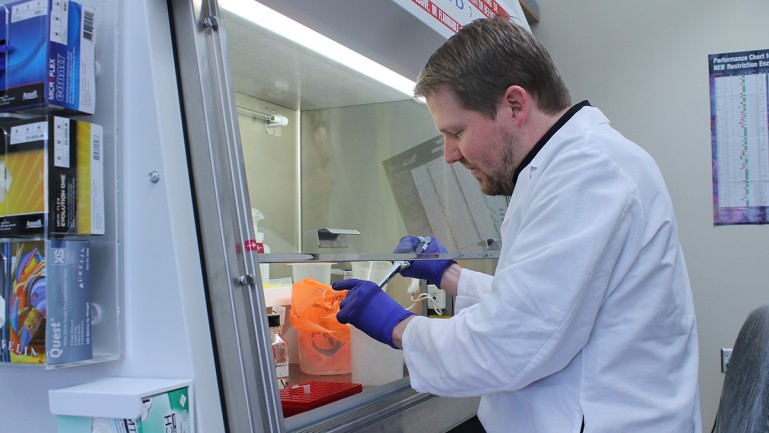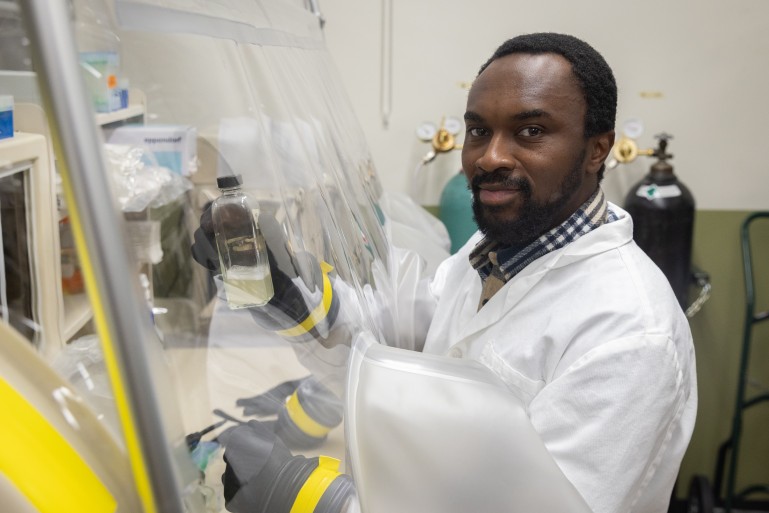MADISON — A national research initiative announced today will place the University of Wisconsin–Madison at the forefront of a revolution in imaging fostered by cryo-electron microscopy and cryo-electron tomography — technologies that can illuminate life at the atomic scale.
Keegstra Fellow Kyle Kinney is working with Jason Peters and Tim Donohue to develop genetic and synthetic biology tools for several bioenergy-relevant bacteria.
The goal of replacing petroleum-based chemicals and fuels with plant-based products hinges on using as much of the plant matter as possible to keep costs and waste to a minimum.
For being audaciously young, Dan Ludois has an appreciation for history. In his office in Engineering Hall, a poster of Nikola Tesla broods beside a Ghostbusters-inspired proton pack. Antique batteries share shelf space with handmade prototypes of his inventions.
Students and staff returning to the University of Wisconsin–Madison can protect each other from COVID-19 with masks designed by the university’s experts in textiles, filtration and infectious disease, and made by one of Wisconsin’s oldest companies.
On July 5, 2020, Karen and William Monfre Professor of Chemical and Biological Engineering Jennifer Reed passed away at age 41 after a protracted struggle with cancer.
Some of the most exciting advancements in modern chemistry don’t require test tubes, bioreactors or even lab coats. Computational chemistry is a branch of the science that uses computer simulations to determine the structure and properties of chemicals and materials.



